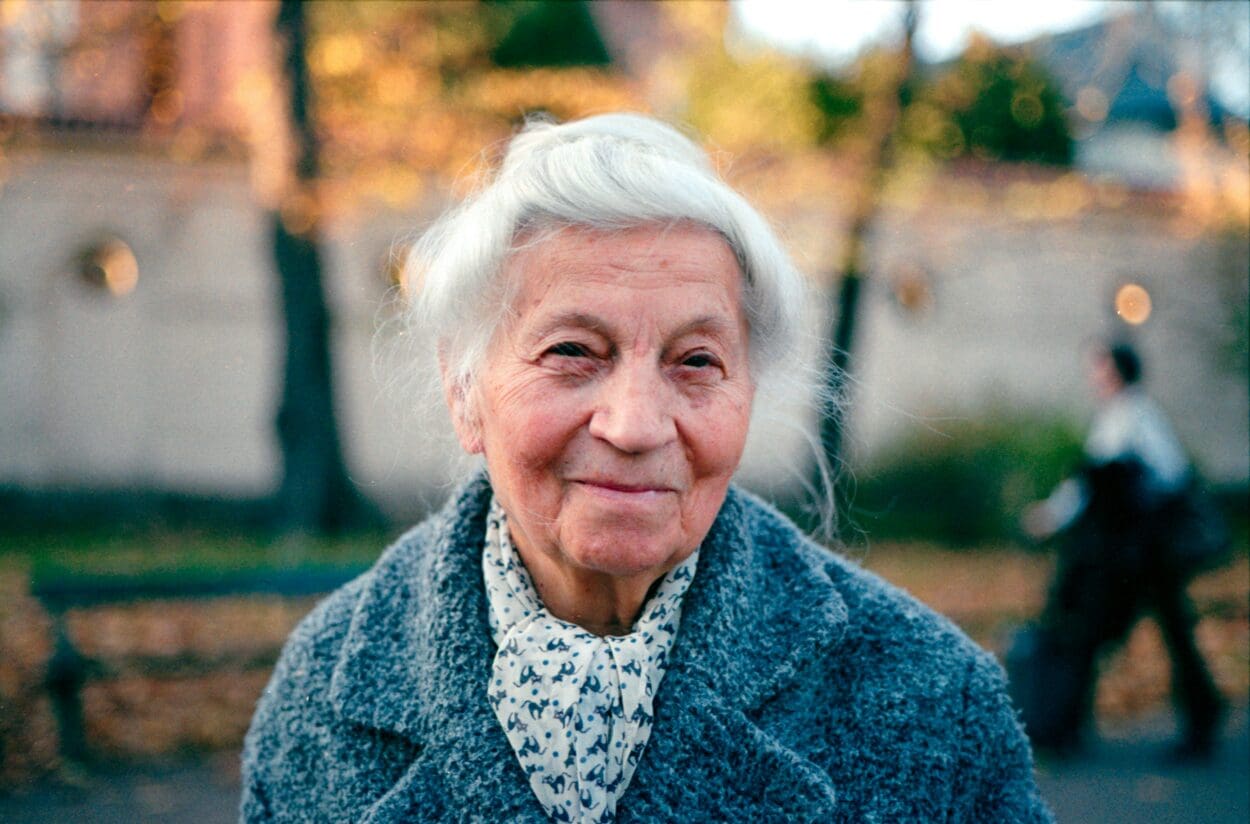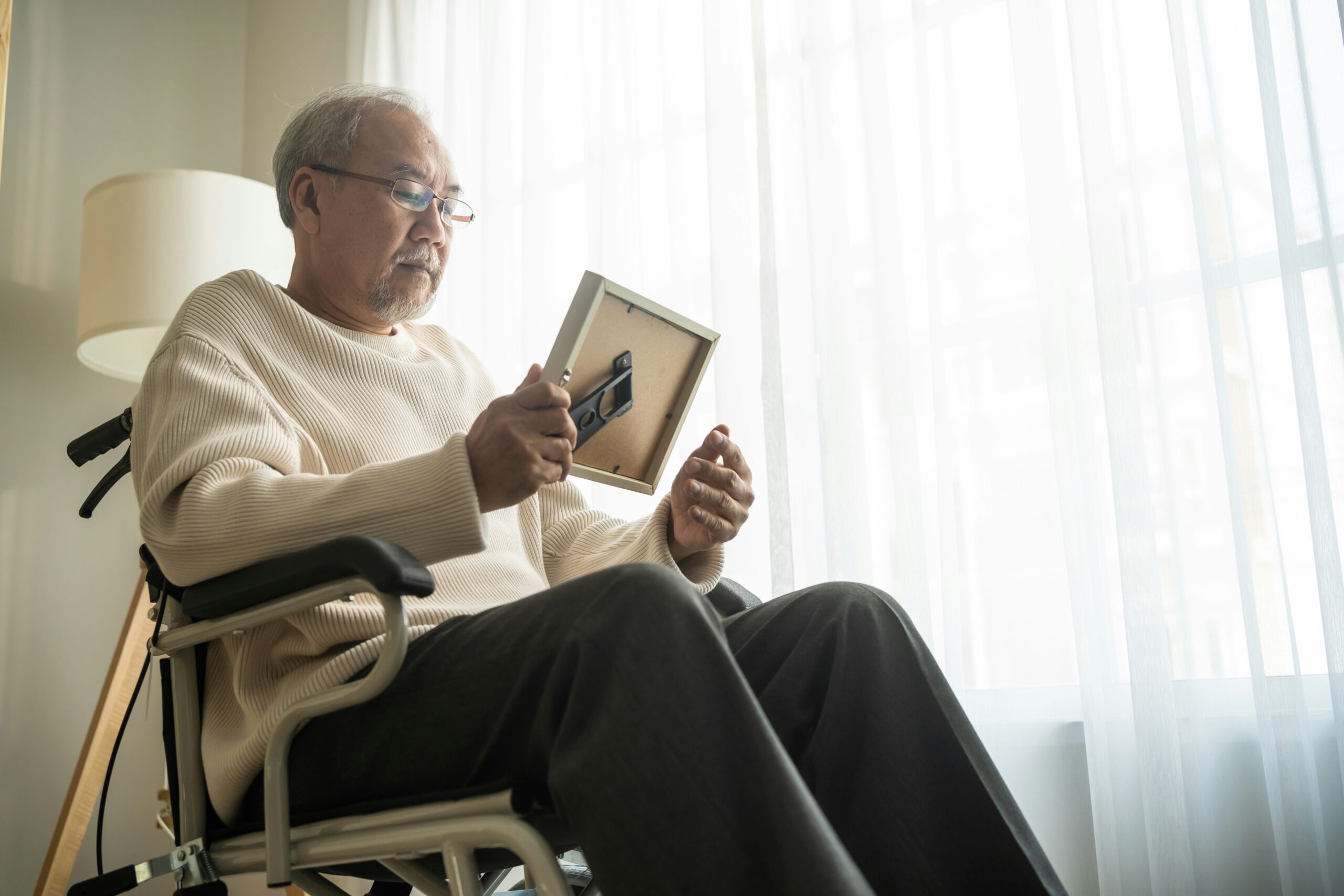In October 2023, I permanently relocated from Canada to Lithuania. My decisions for moving were multifaceted, but one of the biggest drivers was to connect to my Lithuanian heritage and pursue a Master’s degree in the country. But in doing so, I was leaving behind my grandmother, who was in a long-term care facility with dementia that seemed to worsen by the week. It feels paradoxical that I moved to my grandma’s home country to connect deeper with her culture. In an attempt to get closer, I moved further. While I have some regrets, I’ve also found more of myself.
Dementia altered everything I knew about my Grandma…
Watching my grandma deteriorate was particularly painful for my family and I. My grandma was stubborn (I say endearingly) and independent to a fault for her entire life. For as long as I’ve been alive (quite literally, she moved to her apartment the year I was born) she lived alone in Toronto — for almost 25 years. She had more mobility in her 80s than I did in my 20s. She was a farmer’s daughter and had the hip and back flexibility to show for it. She cooked, cleaned, baked, knit, and walked — a lot. I used to ask her what her favourite sport was, and she would simply say “walking”. During her career as an accountant, she would walk for over an hour to work and back every day.
I say she was stubborn and independent to a fault because ultimately, her strong character contributed to her winding up hurt. She slipped on ice a few years back and injured herself quite badly. She tried to hide it at first. When my mom called her to confirm that she was coming for her weekly Sunday visit, she refused. This was very out of character for my grandma. Nary would she refuse a visit from my mom and I to eat lox around her glass dining room table and paint vivid tableaus of her childhood. My mom was immediately suspicious of her refusal and dropped everything to drive to Toronto. When she unlocked my grandma’s door, she was greeted with the horrifying image of my grandma’s sunken bruised eyes and arm in a sling.
We believe that this fall, during which she sustained a head injury, was the catalyst for her eventual stroke.
saw my grandma in the hospital for the first time in my life after she had a stroke. I was taking an intensive online Lithuanian course the summer of 2022. I felt like practicing my new language skills was the perfect opportunity to lighten the mood and distract the three of us from the fact that a woman marked by such independence was stuck in the hospital, barely able to walk to the bathroom on her own accord. And hearing anecdotes of my grandma experiencing severe sundowning from nurses younger than myself was a sobering reality.
Over the next year, her condition worsened.
The truth is, I grieved my grandma’s death before I left Canada. It never felt the same once she started forgetting who my mom and I were. Her eyes would still light up when we reminded her of who I was. It was endearing that part of the reason she couldn’t recognize me was because I was still a little girl in her mind. She would often confuse me for my aunt, now in her 50s, because the prototype she had of her forever remained as a 20-something-year-old woman.
As she progressively began to recognize her surroundings less and less, I made every effort to call her once a week and visit as often as I could. She would say that I was her favourite guest. Though our pastimes had changed since my childhood, which included baking, drawing, doing crossword puzzles, and hiking around Toronto’s High Park, our meetings still retained a vestige of the past.
By 2023, my mom and I had to swallow one of the most difficult pills and accept that my grandma needed 24-hour care. The effects of her dementia were becoming a danger to herself and having a nurse visit her apartment for a few hours a day would no longer suffice. We packed some of her things, parted with others, and said our final goodbyes to her apartment as we made plans to move her into a Lithuanian long-term care home.
Aside from my grandma’s health deteriorating, 2023 marked one of the most difficult periods of my personal life. I ended a nearly 7-year-long relationship and I was newly diagnosed with Borderline Personality Disorder. I felt increasingly depressed and isolated in my solitary apartment and struggled to support myself financially as I tried to find a job that, for lack of a better term, would not contribute to my ever-increasing suicidal ideation.
Things drastically turned around when I visited Lithuania that summer for another Lithuanian language course. I quickly formed a community among classmates, teaching staff, and local baristas in this pedestrian-friendly city. My love for learning and exploring was swiftly reignited. I connected with people on a level that I was craving but was never quite able to satiate back in Canada. We spent days and nights exchanging ideas about geopolitics, linguistics, philosophy, art, and music. I realized that my hobbies that were considered peculiar novelties, like foraging, were ingrained cultural practices in Lithuania. For the first time in years, I felt at home. The seed for me moving to Lithuania had been planted back in 2019, but I never formed a concrete plan. After years of talking about the move as a hypothetical, I decided to make the jump and leave my life back in Canada. This also meant temporarily parting ways with my grandma…or so I thought.
Little did I know that September 2023, just days before moving overseas, would be the last time I would ever see her again.
On August 12th, 2024, the day I returned from a short trip to Stockholm, I received news from my mom that my grandma passed away on the day I left for my trip — only a couple of months before I was set to pay a visit back home.
Coping with the guilt of moving abroad
My mom always had a mantra that you need to live your own life. She followed this motto when she, my father, and I moved to Italy for three years, motivated by my father’s change in career. This left my grandma heartbroken. We were best friends, and her best friend was being ripped away from her. Thankfully, we returned back to Canada and we were reunited once again.
I applied this mantra to my own decision to move to Lithuania. Although I loved my grandma beyond words, as well as my mom and friends I was leaving behind, I felt as though I was risking severe repercussions for my mental health if I continued to tough it out in an environment that filled me with despair.
The fact that my grandma couldn’t remember who I was near the end didn’t absolve my guilt for leaving. In some ways, it made it worse. I knew her time on earth was coming to an end, but I remained overly optimistic about how much longer she had.
I regret not making more of an effort to talk to her on the phone while she was at the long-term care home. I knew that she was having an immensely difficult time adjusting. Truthfully, she never did adjust, as confirmed by the staff at the LTC facility. She was experiencing only what I can describe as sundowning at all hours…confusion, aggression, and a total lack of awareness for her surroundings. It became increasingly obvious that she had no idea who my mom was when she would visit.
In the Lithuanian language, we have an informal way of addressing someone you are speaking to — tu. You would use this amongst anyone you’re familiar with and this was how my mom and grandma referred to each other for their entire lives. There is another more formal way of addressing someone — jūs. You would only use this version with a stranger you’ve just met, a superior, or an elder. Even when my mom attempted to jog my grandma’s memory with who she was, my grandma was adamant about using the formal jūs to address my mom. This was one of the greatest signals to my mom that her own mother could no longer remember who she was. And I knew how much this broke my mom’s heart. This change was a huge signal that my grandma’s days were quickly coming to an end.
The thing that eats me up inside is that I planned on returning to Canada in November of this year, eager to see her one more time before she passed. But it was too late. Instead, my visit in November will be spent spreading her ashes.
Things to consider before moving away from a dying family member
If you’re motivated to leave the country for a career change or to start a new chapter of your life, it’s likely you’ve already formed an informal pros and cons list. Making this decision is undoubtedly harder when you’re leaving behind a loved one whose days are unfortunately coming to an end. In light of this quandary, I urge you to consider the following before deciding whether moving abroad at this time is right for you.
Assess your motivations for moving
Ultimately, you need to assess your reasons for moving, especially if you’re planning on moving far from home. Are your goals time-sensitive? Can they wait for a few more years? Is your move temporary, or indefinite? How often will you realistically be able to visit? Would you be able to cope if your loved one passes away while you are abroad?
None of these questions have straightforward answers. I’d imagine that given the circumstances of my situation, many wouldn’t choose to move abroad. But whether I regret my decision is difficult to say. I’ve met people who have turned my world upside down here in Lithuania. I don’t know what would’ve happened had I delayed the move, especially given the state of my mental health for the last few years I was in Canada.
So, take some time to think about why you’re moving. Is it a decision motivated by impulse? Or has it been thought through?
Consider the impact of your move on loved ones back home
Much like my mother, I too believe that you’re entitled to “living your life” and not letting others hold you back. However, this mantra may not hold true if you have loved ones depending on you.
Are you somebody’s primary caretaker? Are you part of the support system of a loved one’s caretaker? If so, will this person have others to support them if you leave?
These answers may be dealbreakers for you.
Accept that time won’t always be on your side
Time waits for no one. Unfortunately, it won’t always wait for you when you plan a trip back home. As much as I hoped to see my grandmother once more this year, one full year of being out of the country was long enough for the sand to run out of the hourglass.
While abroad, I encountered unexpected barriers like residency permit complications and subsequently, financial constraints, that prevented me from being able to visit sooner. When it comes to moving out of the country, consider that bureaucracy can be incredibly frustrating and things may not always go as you plan. These hurdles may ultimately force you to be away from your loved one for longer than you anticipate.
Should you move abroad if you leave behind a dying family member?
This is not an easy question to answer and there is no answer tailored to your specific situation that you could read in any blog post. Instead, there are a few key points that I encourage you to think about before making a decision. What are your reasons for moving? Have you thought about how your loved ones back home will be impacted by your move? Can you accept that unprecedented circumstances may prevent you from visiting as soon as you’d hoped?
While no decision will feel perfect, the best you can do is thoughtfully weigh your options and be at peace with the path you pursue, knowing that life — and loss — will unfold no matter where you are.








Leave a Comment